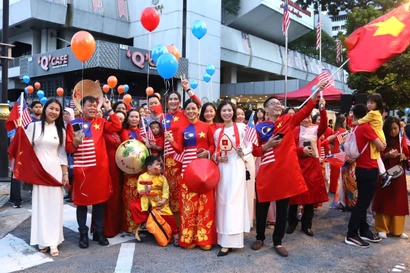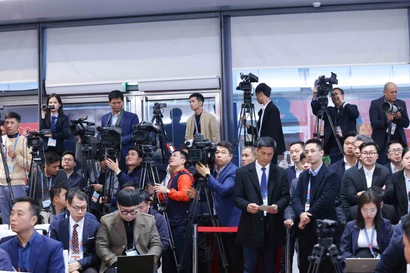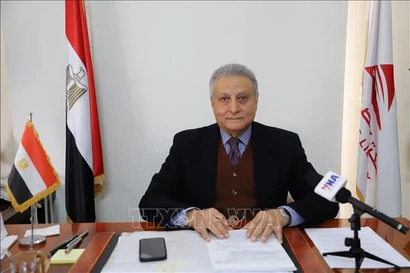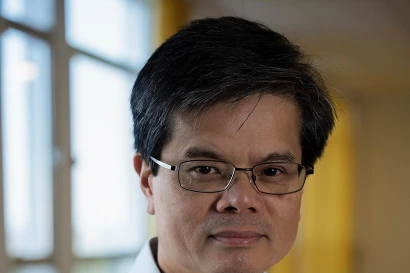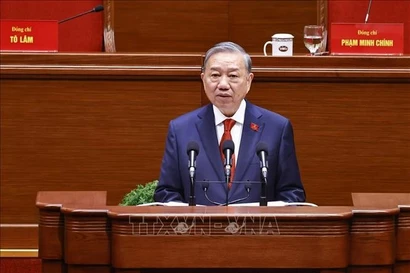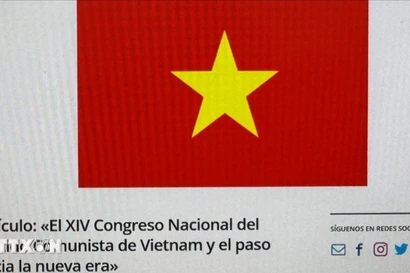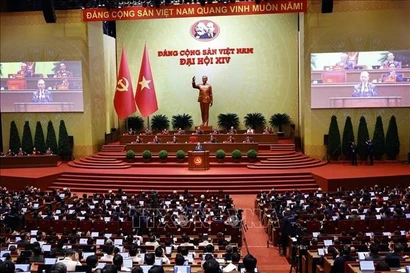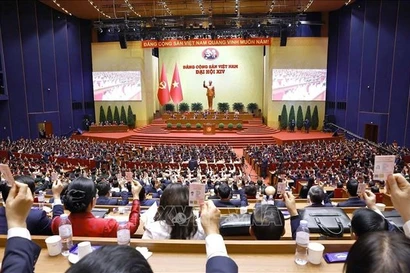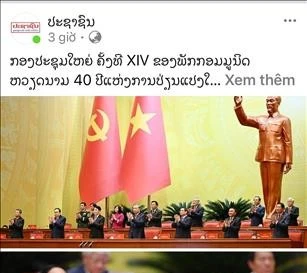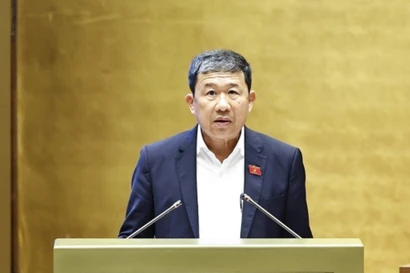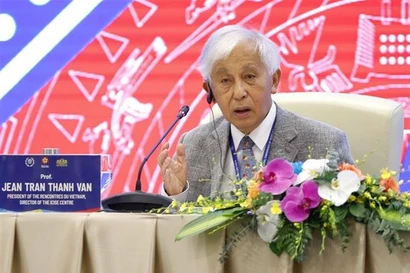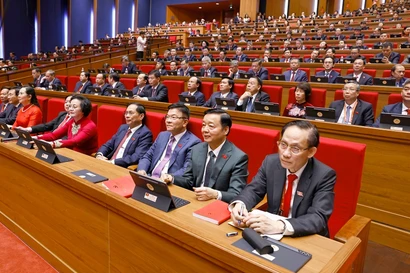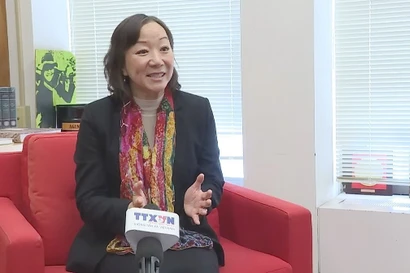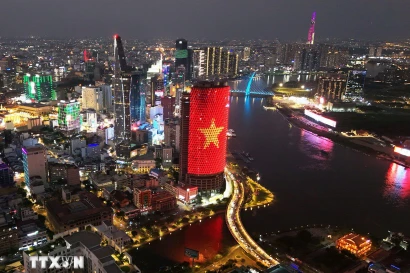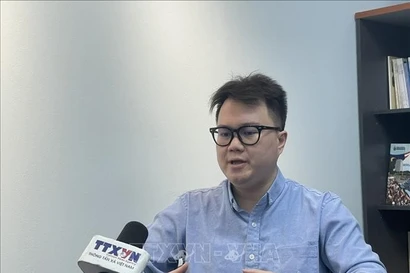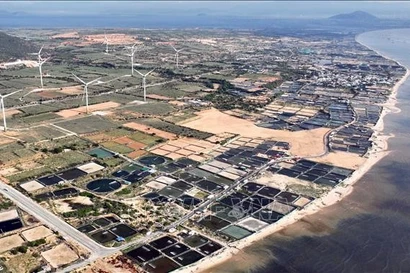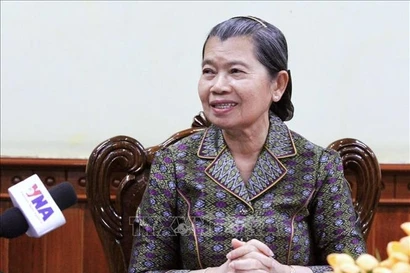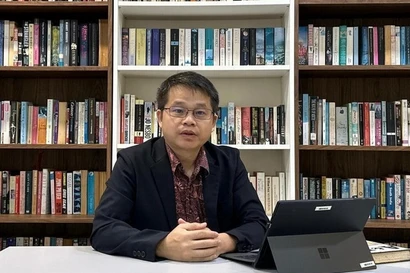Lang Son (VNA) – Officials, Party members and residents in the northern province of Lang Son have expressed strong support for the orientations outlined in the draft documents to be submitted to the 14th National Party Congress, particularly the emphasis on promoting the nation’s “soft power” – encompassing historical and cultural values, patriotism, national unity, pride and self-respect – as a foundation for achieving the country’s long-term development goals.
Studying the draft documents, local officials, entrepreneurs, scientists and residents agreed with the six key tasks and three strategic breakthroughs proposed. However, many suggested that the documents should place greater emphasis on removing bottlenecks and unlocking available resources; accelerating decentralisation and delegation of authority; and enhancing autonomy and accountability of localities, alongside building high-quality human resources.
Bui Thi Bich Dao, General Director of DK Viet Nhat Electric Vehicle Co., Ltd., highlighted the importance of institutional reform, digital transformation, and the application of scientific and technological advances in production and management. She said these priorities are timely and aligned with the country’s development trajectory.
According to Dao, technology application can multiply productivity and economic value, but it must be adopted in a way that matches enterprises’ actual conditions. Her company, with fewer than 100 employees, has initially applied management software and artificial intelligence in accounting and administration. It has also developed the DKbike App Connect, enabling users to monitor battery levels, locate vehicles, manage travel history and interact with the company. As the production scale expands, the firm plans to deploy robots in manufacturing.
She said the Politburo’s Resolution No. 68-NQ/TW issued on May 4, 2025 on developing the private economic sector reflects strong support from the Party and State, creating favourable conditions for businesses to grow, innovate and compete.
Private enterprises now play an increasingly significant role in both Vietnam’s overall economy and Lang Son’s local development. However, as a mountainous border province with limited resources, most of Lang Son’s 5,700 enterprises remain small or micro-sized. Many face constraints in technology, management capacity, finance and competitiveness, while their ability to participate in regional and global value chains is still limited.
To support the private sector's development, Dao proposed continuing the implementation of tax and land-rental support policies under the national socio-economic recovery programme; and called for additional mechanisms to encourage technological modernisation, connect startups with investors, and develop high-tech zones and innovation incubators.
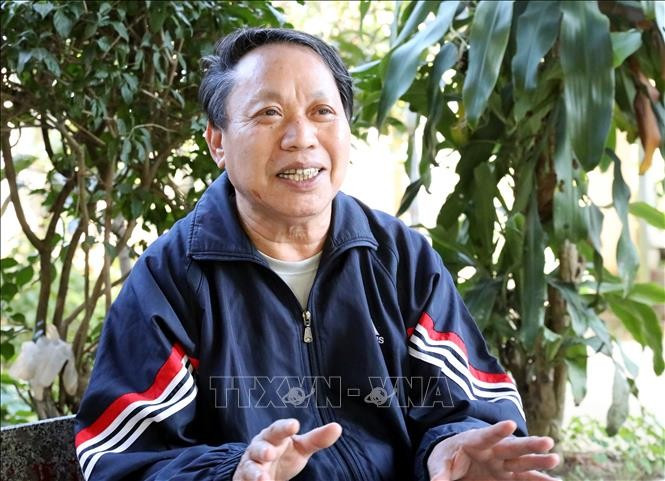
Hoang Van Pao, Chairman of the provincial Union of Science and Technology Associations and head of the advisory council on culture and society of the provincial Vietnam Fatherland Front Committee, underscored that Vietnam’s historical legacy, cultural identity and spirit of patriotism, self-reliance and national aspiration constitute vital internal strength and "soft power" for development.
He noted the draft Political Report rightly identifies human resources and culture as foundational pillars and endogenous drivers for rapid and sustainable national development. Cultural, historical and human assets, he said, not only define national identity but also shape socio-economic pathways.
Lang Son, despite economic challenges, possesses rich cultural and historical resources. The province is home to more than 330 relics and scenic sites, including Mac Dynasty Citadel, Dong Dang Mother Temple, Chi Lang historical site, Mau Son mountain range and Tam Thanh–Nhi Thanh caves, and vibrant cultural traditions of its seven major ethnic groups. It also has nine national intangible cultural heritages, two UNESCO-recognised intangible heritages, and UNESCO-designated Lang Son Global Geopark.
Recent years have seen major investments in tourism infrastructure, product development and promotion activities. By November 2025, the province had nearly reached its annual target of welcoming 4.4 million visitors, generating tourism revenue of around 4.5 trillion VND (170.77 million USD).

Pao said the Party and State should continue revitalising culture, encouraging innovation aligned with global trends and the digital era, and supporting the development of cultural industries. Localities should prioritise preservation and restoration of cultural and historical sites, while integrating cultural values with tourism development to create jobs and improve livelihoods.
Nguyen Quoc Hong, Secretary of the Party cell of Xuan Cuong Friendship Joint Stock Company, praised the drafts' viewpoint on building a “pure and strong” Party organisation. He emphasised that Party organisations act as the political nucleus within enterprises, contributing to patriotic emulation and strengthening labour relations. Established in 2022 with nine members, his company’s Party cell now has 15 members, actively supporting workforce engagement and resolving challenges./.
